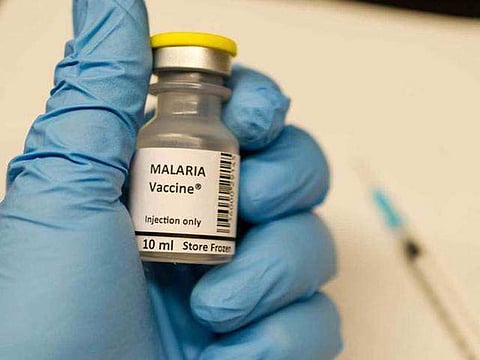Malaria vaccine a historic moment
Mosquirix developed for any parasitic disease expected to turn the tide

Nearly half the world’s population is at risk of malaria. In 2019, the World Malaria Report stated that there were 229 million cases and 409,000 deaths due to the illness. And Africa is home to about 94 per cent of all malaria cases and deaths.
Malaria is far more deadly than COVID-19 in Africa. So, when the World Health Organisation approved the only vaccine against malaria, it was a welcome move greeted with optimism and some sense of relief around the world.
The vaccine Mosquirix is not just a first for malaria, it is the first developed for any parasitic disease. Parasites are much more complex than viruses or bacteria, and the quest for a malaria vaccine has been underway for 100 years.
Mosquirix has been developed by British drugmaker GlaxoSmithKline. Since 2019, infants in Ghana, Kenya and Malawi have been administered the vaccine in a large-scale pilot project coordinated by WHO. Clinical trials had earlier taken place for a decade in seven African countries.
The vaccine’s effectiveness at preventing severe cases of malaria in children is only around 30%, but its benefits are expected to far outweigh the risks.
Another vaccine against malaria called R21/Matrix-M that was developed by scientists at Britain’s University of Oxford is still in the trial stages. It showed up to 77 per cent efficacy in a year-long study involving 450 children in Burkina Faso. But it is one thing to approve a vaccine, and another to mobilise financing for production and distribution. Financing a vaccine for COVID-19 that has affected the entire world’s population was easier than doing so for a disease that is hardly prevalent in the developed world.
A global market study has projected demand for a malaria vaccine would be 50 to 110 million doses per year by 2030 if it is deployed in areas with moderate to high transmission of the disease. GSK has committed to produce 15 million doses of Mosquirix annually up to 2028.
All this is good news. But there is need for more vaccines to fight diseases like malaria. Unfortunately, the high costs for research and development and the money it will generate later are not motivating factors for big pharmaceuticals.
But for the large populations in Asia and Africa who have battled malaria and lived through cycles of the disease, the approval of a new vaccine could not have come at a better time.
Advances in science must be channelled towards finding solutions to the common illnesses that afflict mankind. Resources must be pooled to help those in need. A healthy population will go a long way in making our world a healthy one.



